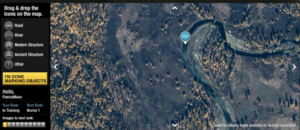Spurred by that mystery, which has never been solved, the International Civil Aviation Organization adopted rules that require airplanes to report their latitude, longitude and altitude at least once every 15 minutes.
With more than 100 satellites in orbit equipped with Automatic Dependent Surveillance-Broadcast transponders, Spire Global “is able to build a real-time picture of the entire aviation sector around the world,” Har-Noy told SpaceNews.
In 2019, Spire unveiled AirSafe API, a global aircraft tracking product that combines data from sensors in space and on the ground.
In addition to satisfying safety concerns, Spire Global data pinpointing the location of cargo aircraft can be a powerful indicator of economic activity, he added.
Spire Global, which operates a fleet of satellites equipped with global navigation satellite system radio occultation receivers, also can pair aircraft position data with information on atmospheric conditions.
“Air pressure and humidity are meaningful things that allow you to have a smooth, safe flight,” Har-Noy said. “On the aviation side, there’s a lot you can do from safety to operational efficiency as well as pricing.”
DigitalGlobe purchased Tomnod in 2014. DigitalGlobe was acquired by Maxar Technologies in 2017.
Until 2019, Har-Noy worked for Maxar as unified platform vice president. He then spent a year at Uber Technologies, helping the company quickly detect map errors with geospatial imagery and other tools.



